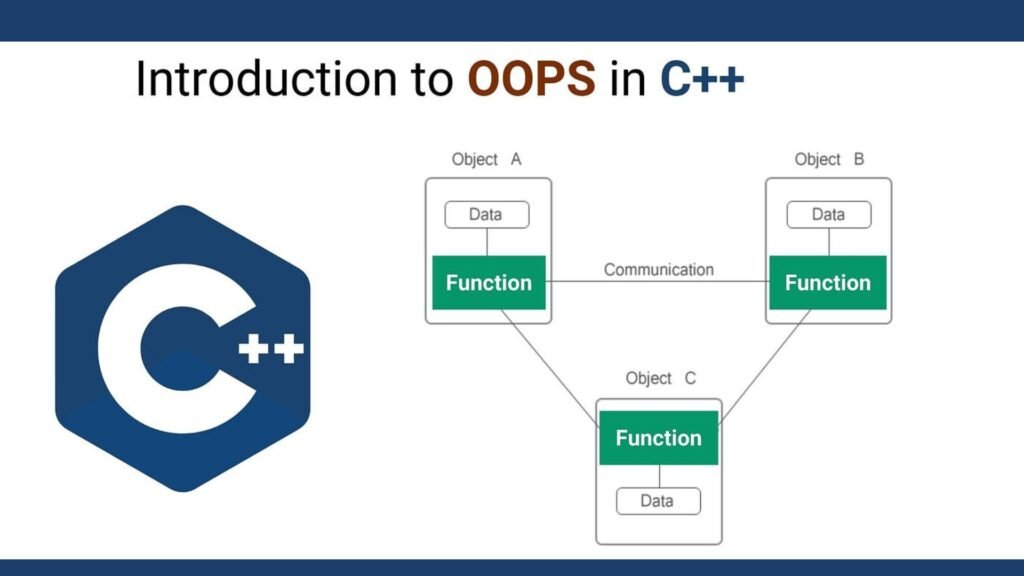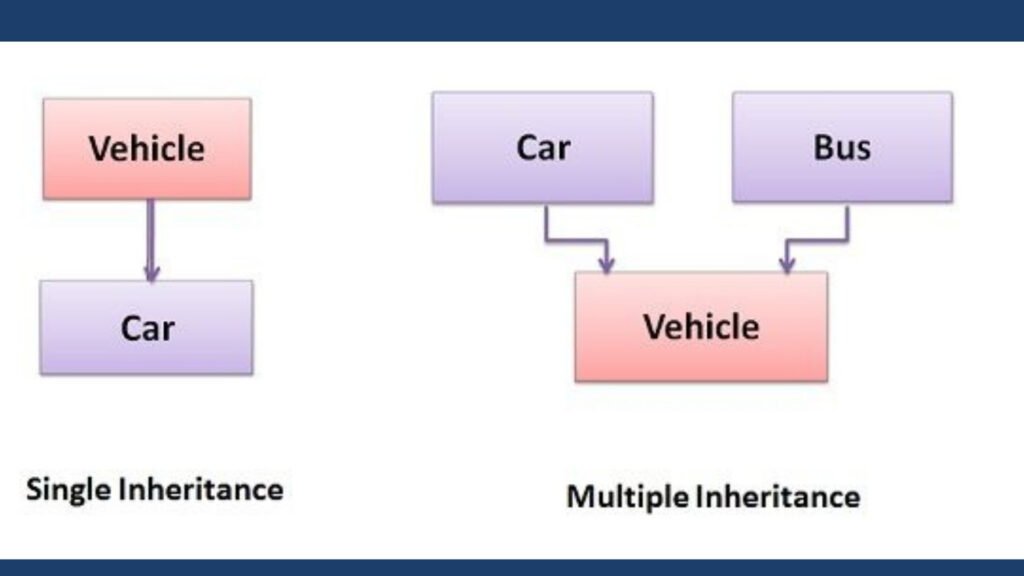Object-Oriented Programming (OOP) in C++ is an art that blends structure with flexibility, efficiency with scalability. If you’re a C++ developer, software engineer, or programming enthusiast, you’ve likely encountered the challenge of crafting code that’s not only efficient but also scalable. This blog post aims to provide you with the best practices in C++ OOP, ensuring your code performs well under pressure and scales seamlessly as demands grow. From designing class structures to managing memory, we’ll explore each aspect of OOP with a focus on performance optimization and scalable code design. Let’s get started!
Introduction to OOP Principles in C++
Before we dive into the specifics of C++ OOP best practices, it’s crucial to revisit the fundamental principles of Object-Oriented Programming. Understanding these principles lays the groundwork for developing robust and efficient applications in C++. Encapsulation, inheritance, polymorphism, and abstraction are the four pillars of OOP, each contributing to clean, modular code design.
Encapsulation involves bundling data and methods that operate on that data within a class, protecting them from unauthorized access. In C++, encapsulation helps maintain control over data and ensures that an object’s internal state is consistent. By using access specifiers like private, protected, and public, developers can manage how data is accessed and modified.
Inheritance allows developers to create new classes based on existing ones, promoting code reuse and reducing redundancy. By deriving new classes from a base class, programmers can build upon established functionality while adding specialized behavior. This hierarchical relationship forms the backbone of efficient code organization in C++.

Polymorphism, the ability of different classes to be treated as instances of the same class through interfaces, is key to achieving flexibility in C++ applications. It enables developers to design systems that can handle various types of objects with a single interface, simplifying code maintenance and extension.
Designing Efficient Class Structures
The design of class structures plays a pivotal role in the performance and scalability of C++ applications. A well-thought-out class hierarchy not only improves readability but also impacts how efficiently resources are utilized. When designing classes, it’s essential to strike a balance between functionality and simplicity.
Start by clearly defining the responsibilities of each class. Adhere to the Single Responsibility Principle (SRP), which states that a class should have only one reason to change. This principle helps prevent bloated classes that try to do too much, leading to more maintainable and understandable code.
Consider the relationships between classes. Use aggregation and composition to model strong relationships where objects contain other objects. Aggregation represents a “has-a” relationship, while composition implies ownership and a lifecycle dependency between objects. These relationships guide how classes interact and share data.
Avoid deep inheritance hierarchies. While inheritance is powerful, excessive use can lead to complexities and fragility in code. Favor composition over inheritance when possible, as it provides more flexibility in assembling objects with different behaviors.
Memory Management: Pointers vs. Smart Pointers
Memory management is a critical aspect of C++ programming, directly affecting performance and stability. Traditional pointers offer direct control over memory allocation and deallocation, but they come with the risk of memory leaks and dangling pointers. Smart pointers, introduced in C++11, provide a safer alternative by automating memory management tasks.
Unique pointers (`std::unique_ptr`) manage a single object and ensure that memory is released when the pointer goes out of scope. They prevent accidental copying and ownership transfer, reducing the chances of resource leaks. Unique pointers are ideal for objects with sole ownership, such as those created dynamically within a function.
Shared pointers (`std::shared_ptr`) enable multiple objects to share ownership of a resource. They maintain a reference count, ensuring that memory is released only when the last reference to the object is destroyed. Shared pointers are suitable for situations where objects need to be accessed by multiple parts of the application.
Weak pointers (`std::weak_ptr`) complement shared pointers by allowing references to shared resources without affecting their reference count. Weak pointers prevent circular dependencies, which can cause memory leaks in complex object graphs. They are valuable for scenarios where temporary or optional references are needed.
Using Inheritance Wisely: Single vs. Multiple Inheritance
Inheritance is a double-edged sword in C++. While it promotes code reuse and organization, improper use can lead to convoluted and error-prone designs. One key decision when using inheritance is whether to employ single or multiple inheritance.
Single inheritance involves deriving a class from a single base class. It simplifies the class hierarchy and reduces potential conflicts, making it easier to understand and maintain. Single inheritance is often sufficient for most scenarios, as it encourages clear and focused class design.

Multiple inheritance allows a class to inherit from more than one base class. While it provides flexibility, it introduces complexity and the risk of ambiguity, known as the “diamond problem.” This occurs when a class inherits from two classes that share a common base class, leading to multiple instances of the base class.
To mitigate the challenges of multiple inheritance, consider using interfaces and composition. Interfaces define contracts that classes must adhere to, enabling polymorphic behavior without the need for multiple inheritance. Composition, as mentioned earlier, allows you to build complex objects by combining simpler ones, offering a more modular approach.
Virtual Functions and Performance Implications
Virtual functions are a hallmark of polymorphism in C++. They enable dynamic dispatch, allowing derived classes to override base class methods and customize behavior. However, virtual functions come with a performance cost due to the overhead of runtime method resolution.
To optimize performance, minimize the use of virtual functions in performance-critical paths. Consider using concrete classes for frequently called methods, as they eliminate the indirection associated with virtual functions. This approach reduces call overhead and improves execution speed.
Use virtual functions judiciously and selectively. Reserve them for scenarios where flexibility and extensibility are paramount, such as plugin architectures or frameworks. By limiting their usage, you can strike a balance between the benefits of polymorphism and the need for efficiency.
Inline Functions for Optimization in C++
Inlining functions is a powerful technique for optimizing C++ code. When a function is marked as inline, the compiler attempts to replace its calls with the function’s actual code, eliminating the overhead of a function call. This can lead to significant performance improvements, especially for small and frequently used functions.
However, inlining is not always guaranteed and should be used with caution. Compilers make inlining decisions based on factors such as function complexity, size, and usage frequency. Excessive inlining can lead to code bloat, increasing executable size and potentially outweighing the benefits.
Identify candidate functions for inlining carefully. Focus on short, simple functions that are called frequently, such as accessor methods or utility functions. Avoid inlining large or complex functions, as they may increase compilation time and hinder maintainability.
Understanding Copy Constructors and Assignment Operators
Copy constructors and assignment operators play a crucial role in managing object lifecycles and resource ownership in C++. Understanding how to implement them effectively is essential for maintaining code integrity and preventing resource leaks.
The copy constructor is responsible for creating a new object as a copy of an existing one. When implementing a copy constructor, consider whether a shallow or deep copy is necessary. Shallow copies duplicate references, while deep copies replicate the entire object’s state, including any dynamically allocated resources.
The assignment operator assigns one object’s values to another, potentially involving resource cleanup and reallocation. Implementing the assignment operator correctly ensures that resources are managed efficiently and prevents memory leaks. Utilize the “copy-and-swap” idiom, which leverages a temporary object to simplify the assignment process and enhance exception safety.
Move Semantics: Enhancing Performance with Rvalue References
Move semantics, introduced in C++11, revolutionized the way objects are managed and optimized. By using rvalue references, move semantics enable the transfer of resources from temporary objects to new ones, minimizing unnecessary copying and improving performance.
Rvalue references are denoted by double ampersands (`&&`) and allow developers to distinguish between temporary and permanent objects. When a temporary object is about to be destroyed, move semantics enable its resources to be “moved” to a new object, leaving the temporary object in a valid but unspecified state.
Implementing move constructors and move assignment operators enhances performance in scenarios involving resource-intensive operations, such as large data structures or file I/O. By leveraging move semantics, developers can achieve significant reductions in memory allocations and copying, resulting in faster and more efficient code.
Avoiding Object Slicing: Best Practices in Inheritance
Object slicing is a subtle issue that arises when objects of derived classes are assigned to variables of base class type. In such cases, the derived class’s additional attributes are “sliced off,” resulting in data loss and unexpected behavior.
To prevent object slicing, use pointers or references when dealing with polymorphic objects. By storing derived class objects as pointers or references, complete object information is retained, preserving behavior and data integrity.
Favor object-oriented design patterns like the Factory or Abstract Factory to create and manage objects dynamically. These patterns encapsulate object creation logic and ensure that objects are correctly instantiated and managed, minimizing the risk of slicing.
Const-Correctness: Enhancing Code Safety and Performance
Const-correctness is a fundamental principle in C++ that ensures code is more predictable, maintainable, and efficient. By declaring variables and functions as `const` when appropriate, developers convey intent and enable the compiler to enforce immutability.
Use `const` to declare variables that should not be modified after initialization. This prevents accidental changes and enhances code readability by signaling that certain values remain constant throughout the program’s execution.

Apply `const` to member functions that do not modify the object’s state. By marking methods as `const`, developers ensure that they can be called on both constant and non-constant objects, promoting code reuse and reducing duplication.
The Role of Templates in Building Scalable Code
Templates are a powerful feature in C++ that enable generic programming and code reuse. They provide a mechanism for creating functions and classes that work with multiple data types, reducing redundancy and enhancing code flexibility.
Use function templates to define algorithms that can operate on different data types without duplicating code. Templates offer a balance between type safety and flexibility, allowing developers to create versatile solutions that adapt to changing requirements.
Class templates facilitate the creation of data structures that can store various types of data. By parameterizing classes with data types, developers can build scalable solutions that accommodate diverse use cases without sacrificing performance.
Design Patterns for Efficient Object-Oriented Design
Design patterns are proven solutions to recurring design challenges in software development. By applying these patterns, developers can create efficient, maintainable, and scalable object-oriented designs in C++.
The Singleton pattern ensures that a class has only one instance and provides a global point of access to it. This pattern is useful for managing resources like database connections or logging mechanisms, where a single instance is sufficient.
The Observer pattern establishes a one-to-many dependency between objects, allowing changes in one object to be automatically reflected in others. This pattern is valuable for building event-driven systems, such as GUIs or real-time simulations.
The Factory Method pattern defines an interface for creating objects but allows subclasses to decide which class to instantiate. This pattern promotes flexibility and extensibility by decoupling object creation from implementation details.
Encapsulation and Modularity: Organizing Code Effectively
Encapsulation and modularity are cornerstones of effective code organization in C++. By encapsulating data and functionality within cohesive modules, developers can create systems that are easy to understand, maintain, and extend.
Encapsulation involves bundling data and methods within classes, ensuring that objects have well-defined interfaces and behavior. By hiding implementation details and exposing only necessary information, encapsulation enhances code readability and reduces the risk of unintended interactions.
Modular design involves breaking down complex systems into smaller, self-contained components that interact through well-defined interfaces. Modules can be developed, tested, and maintained independently, promoting parallel development and reducing dependencies.
Using Namespaces for Avoiding Name Collisions
Namespaces are a vital tool for organizing code and preventing name collisions in C++. They provide a mechanism for grouping related identifiers, ensuring that names do not conflict with those in other parts of the program.
Use namespaces to encapsulate classes, functions, and variables within a logical context. By organizing code into namespaces, developers can avoid naming conflicts and improve code readability by clearly indicating the origin and purpose of each identifier.
Leverage the `using` directive to simplify code and reduce namespace clutter. The `using` directive allows identifiers from a specific namespace to be used without qualifying their names, enhancing code readability and reducing verbosity.
Managing Dependencies: Forward Declarations vs. Includes
Effective dependency management is crucial for maintaining clean and efficient C++ codebases. By controlling dependencies, developers can reduce compilation times and minimize code bloat, resulting in faster build processes and improved maintainability.
Use forward declarations to declare the existence of a class or function before its full definition is available. Forward declarations enable developers to reference classes and functions without including complete header files, reducing compile times and unnecessary dependencies.
Reserve `#include` directives for cases where complete definitions are required. By including only the necessary headers, developers can prevent redundant dependencies and reduce the risk of circular dependencies, simplifying code maintenance and debugging.
Reducing Dynamic Memory Allocation: Stack vs. Heap
Memory allocation is a fundamental consideration in C++ programming, directly impacting performance and resource usage. Understanding when to use stack or heap memory is crucial for developing efficient and responsive applications.
Prefer stack allocation for small, short-lived objects. Stack allocation is faster and requires less overhead than heap allocation, making it ideal for temporary objects and local variables. Objects allocated on the stack are automatically deallocated when they go out of scope, reducing the risk of memory leaks.
Reserve heap allocation for large, complex, or long-lived objects. While heap allocation provides greater flexibility and allows objects to persist beyond their initial scope, it requires manual memory management. Use smart pointers to manage heap-allocated objects and ensure proper resource cleanup.
Implementing Effective Logging and Error Handling
Logging and error handling are integral components of robust C++ applications, providing valuable insights into program behavior and aiding in debugging and maintenance. By implementing effective logging and error handling mechanisms, developers can enhance code reliability and improve user experience.
Use logging frameworks to capture and record runtime information, such as debug output, warning messages, and error details. Logging frameworks like spdlog and Boost.Log offer flexible configuration options, allowing developers to tailor log output to their specific needs.
Implement structured error handling using exceptions and error codes. Exceptions provide a mechanism for propagating errors up the call stack, enabling centralized error recovery. Error codes offer an alternative approach, allowing functions to return specific error indicators that can be checked and handled by callers.
Thread Safety in Object-Oriented Design
Thread safety is a critical consideration for developing concurrent applications in C++. In a multithreaded environment, ensuring that shared resources are accessed safely and consistently is paramount to avoiding race conditions and data corruption.
Use synchronization primitives like mutexes and locks to protect shared resources and coordinate access between threads. By acquiring locks before modifying shared data, developers can prevent simultaneous access and ensure that operations are performed atomically.
Leverage thread-safe data structures and algorithms from the C++ Standard Library. Containers like `std::vector` and `std::map` provide thread-safe functions for manipulating data, reducing the need for explicit synchronization in many cases.
Optimizing Constructors and Destructors for Performance
Constructors and destructors are crucial components of C++ classes, responsible for initializing and cleaning up resources. Optimizing these functions is essential for achieving efficient object creation and destruction, particularly in performance-sensitive applications.
Minimize unnecessary work in constructors. Avoid performing complex calculations or resource allocations within constructors, as they are executed each time an object is created. Instead, consider using functions or initialization methods to defer non-essential work.
Ensure efficient resource cleanup in destructors. Release resources, such as memory, file handles, and network connections, in a timely manner to prevent resource leaks and improve program responsiveness. Use RAII (Resource Acquisition Is Initialization) techniques to automate resource management and ensure proper cleanup.
Static vs. Dynamic Polymorphism: When to Use Each
Polymorphism is a powerful feature of C++ that allows objects of different types to be treated as instances of the same class. Understanding when to use static and dynamic polymorphism is crucial for achieving the desired balance between flexibility and performance.
Static polymorphism, achieved through templates, allows developers to define functions and classes that work with multiple types at compile time. This approach offers the benefits of type safety and performance, as it eliminates the overhead of runtime method resolution.
Dynamic polymorphism, enabled by virtual functions, provides flexibility by allowing derived classes to customize behavior at runtime. This approach is useful for scenarios where the exact type of objects is not known until runtime, such as in plugin architectures or frameworks.
Understanding and Leveraging the C++ Standard Library
The C++ Standard Library is a rich resource that provides a wide range of tools and utilities for developing efficient and scalable applications. By leveraging the library’s features, developers can streamline development processes and enhance code quality.
Use containers and algorithms from the Standard Library to manage data efficiently. Containers like `std::vector`, `std::list`, and `std::map` offer flexible data storage options, while algorithms like `std::sort` and `std::find` simplify common operations on data collections.

Explore additional library components, such as regular expressions, file I/O, and threading support, to address specific application requirements. By incorporating these features, developers can reduce code duplication and improve code reliability.
Profiling and Benchmarking C++ Code for Performance
Profiling and benchmarking are essential practices for evaluating the performance of C++ applications. By measuring code execution times and identifying bottlenecks, developers can optimize their code for improved responsiveness and efficiency.
Use profiling tools to gather detailed information about program behavior, such as function call frequencies, memory usage, and execution times. Tools like gprof, Valgrind, and Visual Studio Profiler provide valuable insights into performance characteristics and guide optimization efforts.
Conduct benchmarking tests to compare the performance of different implementations and algorithms. By measuring execution times under controlled conditions, developers can make informed decisions about the best approaches for achieving optimal performance.
Best Practices for Unit Testing C++ OOP Designs
Unit testing is a vital practice for ensuring the correctness and reliability of C++ applications. By testing individual components in isolation, developers can verify their behavior and identify defects early in the development process.
Use unit testing frameworks like Google Test or Catch2 to automate testing and simplify test case management. These frameworks provide a structured environment for defining and executing tests, making it easier to maintain comprehensive test coverage.
Test both positive and negative scenarios to ensure code robustness. Validate expected behavior under normal conditions and verify error handling logic for exceptional cases, such as invalid inputs or resource shortages.
Code Review and Refactoring Strategies for Scalability
Code review and refactoring are essential practices for maintaining high-quality codebases in C++. By reviewing code regularly and refactoring where necessary, developers can enhance code readability, maintainability, and scalability.
Establish code review guidelines to ensure consistency and clarity in coding practices. Encourage developers to review each other’s code, providing constructive feedback and identifying areas for improvement. Code reviews promote knowledge sharing and help catch potential issues early.
Adopt refactoring techniques to improve code structure and organization. Apply principles like the DRY (Don’t Repeat Yourself) principle and the Rule of Three to eliminate duplication and simplify complex code paths. Refactoring enhances code maintainability and facilitates future development.
Future Trends in C++ OOP: Moving Toward Performance and Scalability
The future of C++ OOP is shaped by evolving technologies and industry trends focused on performance and scalability. Understanding these trends enables developers to anticipate changes and prepare for the demands of modern applications.
Explore emerging paradigms, such as metaprogramming and parallel computing, to harness the full potential of C++. Metaprogramming techniques enable more flexible and reusable code, while parallel computing leverages multi-core processors for increased performance.
Stay informed about updates to the C++ Standard, which continues to introduce new features and enhancements. Upcoming revisions may include improvements to concurrency, memory management, and language syntax, providing developers with even more tools for efficient and scalable software development.
Conclusion
C++ OOP offers immense potential for developing performance-driven, scalable applications. By mastering best practices in class design, memory management, and code organization, developers can create software solutions that meet the demands of today’s dynamic environments. Whether building high-frequency trading systems, scalable video game engines, or industrial automation projects, C++ developers can leverage these principles to deliver efficient and reliable code. Stay curious, keep learning, and continue exploring the possibilities of C++ OOP in your coding endeavors.
Frequently Asked Questions
- What is Object-Oriented Programming (OOP) in C++?
Object-Oriented Programming in C++ is a programming paradigm that uses classes and objects to model real-world entities and their interactions. It emphasizes concepts such as inheritance, encapsulation, polymorphism, and abstraction.
- How does C++ handle memory management?
C++ provides both manual and automatic memory management. Programmers can allocate and deallocate memory using operators like `new` and `delete`, while the Standard Library offers smart pointers like `std::shared_ptr` and `std::unique_ptr` for automatic memory management.
- What are the benefits of using the C++ Standard Library?
The C++ Standard Library offers a wide array of pre-defined classes and functions that simplify tasks like data handling, input/output operations, and algorithm implementations. It helps improve productivity, efficiency, and code quality.
- How do I perform unit testing in C++?
Unit testing in C++ can be performed using frameworks like Google Test or Catch2. These frameworks enable developers to write test cases and verify the functionality of individual components, ensuring code correctness and reliability.
- What tools can I use for profiling C++ code?
Popular profiling tools for C++ include gprof, Valgrind, and Visual Studio Profiler. These tools help measure execution times, memory usage, and identify performance bottlenecks, allowing developers to optimize their code efficiently.
- What are some best practices for code review in C++?
Best practices for code review include establishing guidelines for consistency, encouraging collaborative reviews, providing constructive feedback, and focusing on readability, maintainability, and scalability during the review process.
- How can I improve the scalability of my C++ code?
To improve scalability, focus on efficient data structures, algorithms, and design patterns. Utilize refactoring techniques, follow principles like DRY, and leverage parallel computing and multithreading for performance enhancement.
- What is parallel computing, and how is it applicable in C++?
Parallel computing involves dividing a task into smaller sub-tasks that can be processed simultaneously, often using multiple processors or cores. In C++, parallel computing can be implemented with libraries like OpenMP and tools like Intel TBB.
- What are metaprogramming techniques in C++?
Metaprogramming involves writing programs that process other programs as their data. In C++, this often refers to using templates to write flexible, reusable, and efficient code that can adapt at compile time.
- What future trends should C++ developers be aware of?
C++ developers should stay informed about trends like metaprogramming, improvements in concurrency, memory management, and new features introduced by updates to the C++ Standard. These trends influence the performance and capabilities of modern C++ applications.
